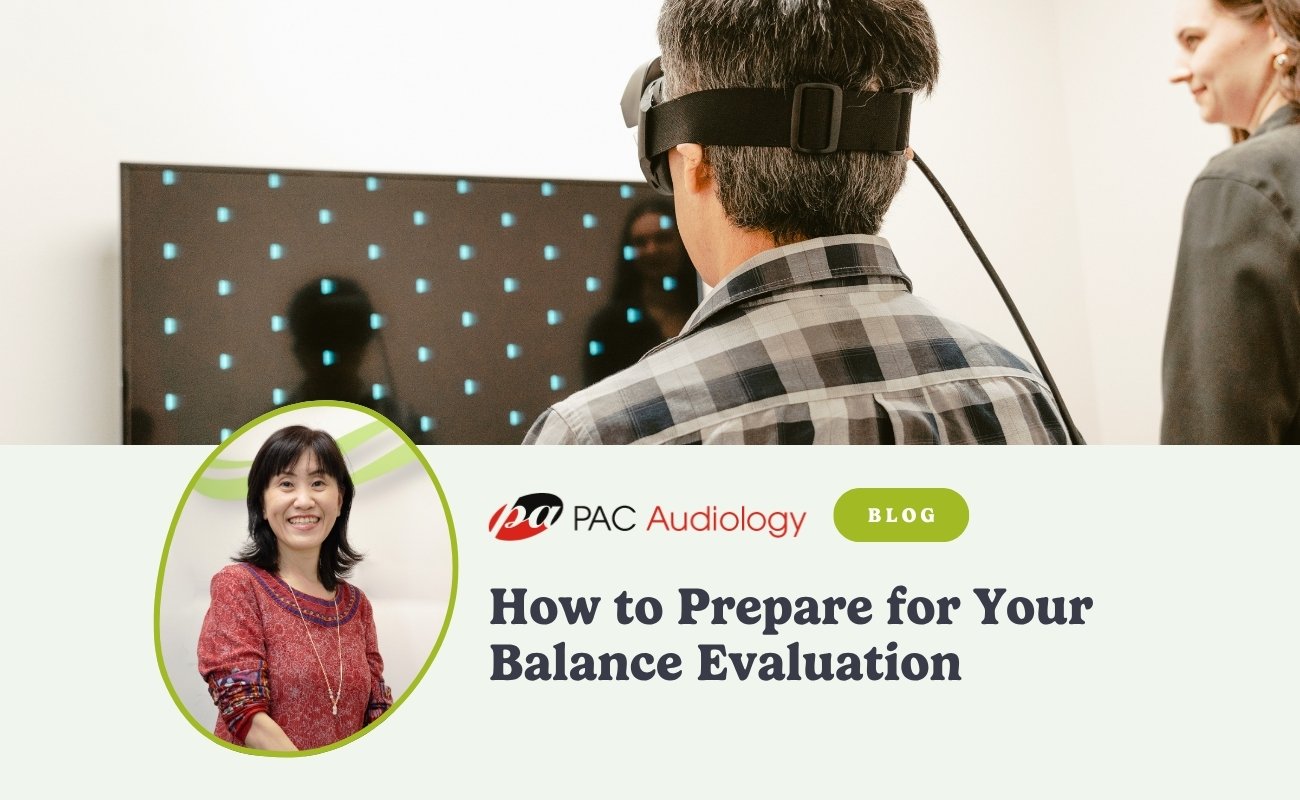How to Prepare for Your Balance Evaluation

A balance evaluation is a comprehensive assessment that helps identify the root cause of dizziness, vertigo, and instability. Coming prepared can make your appointment more efficient and help your audiologist gather the most accurate information about your condition. Here's what you need to know before your visit.
Understanding What to Expect
Balance evaluations use specialized equipment to test how well your inner ear, vision, and sensory systems work together to maintain stability. The testing is non-invasive and typically takes 60-90 minutes to complete, depending on which specific tests your audiologist recommends based on your symptoms. Unlike some medical procedures, there are no needles or uncomfortable interventions involved.
We can schedule your balance evaluation within a few weeks, which is significantly faster than many hospitals and clinics that have waitlists of 3 to 4 months. This means you'll receive a diagnosis and next steps for treatment from your doctor in a much more efficient manner.
Prepare Your Medical History
Before your appointment, gather information about your symptoms and medical background. Write down when your balance problems started, how often they occur, and what triggers them. Be specific about whether you experience lightheadedness, a spinning sensation, or feeling unsteady on your feet.
Your audiologist will need to know about any ear infections, head injuries, or illnesses you've experienced, as these are frequent causes of imbalance, dizziness, and vertigo. Whiplash injuries can affect balance even months or years after the incident occurred. Make a list of all current medications, including over-the-counter supplements, since some can influence balance or cause dizziness as a side effect.
If you've had previous balance testing or imaging studies like MRI or CT scans, bring copies of those results. Past test results help your audiologist understand how your condition has progressed and avoid unnecessary duplicate testing.
Medication Considerations
Certain medications can affect the results of balance testing. Vestibular suppressants, sedatives, sleeping pills, and some anti-anxiety medications may need to be discontinued 48 hours before your evaluation. This includes medications like meclizine (Antivert), diazepam (Valium), and other similar drugs.
Contact your prescribing physician before stopping any medications to make sure it's safe to do so. Never discontinue prescription medications without medical approval. When you schedule your appointment, we'll provide you with specific instructions about which medications to avoid and for how long.
Caffeine and alcohol can also impact test results. Plan to avoid both for at least 48 hours before your evaluation. This includes coffee, tea, energy drinks, and chocolate products that contain caffeine.
What to Wear and Bring
Comfortable clothing makes a significant difference during your evaluation. Choose loose-fitting clothes that don't restrict movement, since some tests require you to move your head, change positions, or walk. Avoid tight collars, restrictive waistbands, or anything that might make you feel constricted during testing.
Wear flat, closed-toe shoes with good traction. You may need to walk on different surfaces or perform movement tasks, so stability matters more than style. Leave high heels, sandals, and slip-on shoes at home.
Remove contact lenses before your appointment and bring your glasses instead. Some balance tests involve wearing special goggles that track eye movements, which don't work well with contact lenses. If you don't have glasses, let us know when you schedule so we can make appropriate accommodations.
Bring a complete list of your current medications, including dosages. If you've kept a symptom diary or log of when your dizziness occurs, bring that as well. Any previous medical records related to your balance problems will be helpful.
What Happens During the Evaluation
Our audiologists are certified with the American Institute of Balance (AIB), one of the country's best-known diagnostic, treatment, and educational facilities specializing in equilibrium disorders. AIB is widely recognized for providing practitioners with the most current clinical and scientific breakthroughs in treatments, and we're proud that they've qualified us as a center of specialty care.
We provide the most advanced neurodiagnostic evaluation for dizziness and balance problems. The testing may include assessments of how your eyes track moving objects, how you respond to changes in position, and how well your balance systems compensate for different challenges.
Your audiologist will explain each test before performing it and answer any questions you have. The goal is to pinpoint exactly where the problem originates in your balance system. Inner ear disturbances account for 85% of dizzy disorders, making specialized testing important for accurate diagnosis.
Plan for After Your Appointment
Balance testing can sometimes trigger temporary dizziness or fatigue. Arrange for someone to drive you home after your evaluation, especially if you're prone to severe vertigo or motion sensitivity. Most people feel fine immediately after testing, but it's better to be prepared.
Plan to take it easy for the rest of the day. Avoid scheduling important meetings, driving long distances, or engaging in activities that require peak mental or physical performance. Give yourself time to rest if needed.
You may feel tired after the evaluation since maintaining focus during testing requires concentration. Some patients experience mild residual dizziness that typically resolves within a few hours. Having a quiet afternoon planned allows you to recover comfortably.
Why Balance Evaluation Matters
Balance problems affect 90 million Americans sometime during their lifetime, according to the National Institute of Health. The impact on daily life can be significant. Dizziness is the number one complaint reported to medical providers in adults 70 years of age or older.
The consequences of untreated balance disorders extend beyond discomfort. Balance-related falls account for more than one-half of accidental deaths in the elderly and cause over 300,000 hip fractures in individuals over 65 years of age. Early evaluation and treatment can prevent these serious outcomes.
Many times, disorders of the inner ear are misdiagnosed as more severe neurological conditions such as multiple sclerosis or as clinical depression. Proper evaluation distinguishes between inner ear problems and other conditions, ensuring you receive appropriate treatment rather than unnecessary interventions.
Inner ear disorders or infections can affect your ability to walk, roll over in bed, see or think clearly, or to read or watch television. These symptoms interfere with work, hobbies, and relationships. Getting an accurate diagnosis is the first step toward returning to normal activities.
Schedule Your Balance Evaluation
We understand that balance issues interfere with your daily life, making even the simplest tasks difficult. That's why we prioritize getting you in for evaluation quickly rather than making you wait months while your symptoms continue to affect your quality of life.
Our team takes time to listen to your concerns, thoroughly explain your test results, and discuss treatment options. We work closely with your referring physician to ensure you receive comprehensive care that addresses the underlying cause of your balance problems.
Contact PAC Audiology at 425-455-0526 to schedule your balance evaluation. Our clinic is located at 1370 116th Ave. NE Suite 201, Bellevue, Washington 98004, and we're open Monday through Friday from 8am to 5pm. Taking the first step toward diagnosis means you're closer to finding relief and returning to the activities you enjoy.










